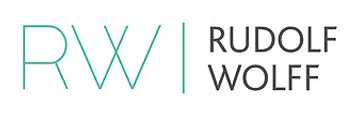German metals merchant Rudolf Wolff established his company, Rudolf Wolff & Co., in London in 1866.
The business was an early participant (1877) in the London Metal Exchange, the world’s preeminent marketplace for primary base metals.
Rudolf Wolff & Co was an industry leader in many areas, and it did it with the service-oriented culture typical of City businesses run by a single family. Among its investor legends, commodity traders and hedge funds have shaped the alternative investment market since the 1980s.
In 2008, the Rudolf Wolff brand name was reintroduced by a group of seasoned investment professionals who included previous members of Rudolf Wolff management.
Let’s look at the terms of the global income fund product from the company.
If you have any questions or want to invest as an expat or high-net-worth individual, you can email me (advice@adamfayed.com) or use these contact options.
What is the Rudolf Wolff Global Income Fund?
Incorporated in Ireland in July 2017, the Rudolf Wolff Global Income Fund’s primary objective is to provide income for shareholders while simultaneously pursuing long-term capital growth. The majority of the Fund’s assets are invested in debt securities because of their stable and adequate coupon income.
The Fund has a current income goal of 5.5 percent (gross) before tax and investment gains. Investors have the option of reinvesting this income in the Fund or receiving it in semiannual payments.
High yield corporate bonds, preference shares issued mostly by large size public companies, and asset backed securities make up the majority of the Fund’s diversified portfolio. All Fund holdings are publicly traded on at least one major exchange.
The Fund’s assets are mostly in British pounds, US dollars, and euros. Each month, non-GBP share classes are converted back into their respective base currencies, and any exposure relating to non-GBP assets is hedged back into GBP.
The Fund is not now using any leverage, but in the future it may do so through the use of derivatives, and it may also contemplate investing in high-yielding equities of large-cap firms.
Rudolf Wolff Global Income Fund operates as a sub-fund of RW Multi-Strategy UCITS ICAV.
You need at least 3,000 British pounds to participate in this investment offering.
Societe Generale, Dublin, serves as the Fund’s custodian. Shares can be purchased or redeemed by shareholders on any day that markets are open in Dublin. Your shares in the Fund are transferable to other qualified shares the Fund has to offer.

How did the global income fund perform?
In June, Rudolf Wolff Global Income Fund’s net return stood at 1.02%, which slipped to 0.84% in July. Looking at the yearly performance, the fund reported a negative return of 7.01% in 2023, following a similar negative trend of 8.38% in the prior-year period.
According to Rudolf Wolff, the Fund’s performance was rather unremarkable, marked by modest gains in its Net Asset Value (NAV).
“Specific to our portfolio, the AT1 market continues to recover its poise after the Credit Suisse debacle in March, with most major bank issuers calling their bonds at first call date rather than allowing them to extend for a further 5 years, which is a good sign,” the company said.
The company also said it believes that there exists substantial untapped potential in the corporate bond market niche the Fund specializes in.
What are the charges?
Investment fees pay Fund operational expenditures, including marketing and distribution.
There is an annual management charge (AMC) of 1.5% for the Fund. In addition, there could be one-time fees involved, either before or after you make an investment. The distributor can request a fee of up to 0.50% of the net asset value per share collected as an entry charge. It should be noted, however, that the directors or their delegates may elect to forego this up-front sales levy. Importantly, there are no exit charges associated with this Fund.
The ongoing charges for this Fund within a year are 2.27%, 2.77%, or 2.99%, depending on the asset class. Additionally, a switching charge of 1% may be applicable if a shareholder switch shares in the Fund more than twice within 12 months.
The maximum amount that could be deducted from your investment before it is placed into the Fund (entry charge) or returned to you (exit charge) is outlined above. For precise details on the actual charges, it’s advisable to consult with your financial advisor or distributor.
Know that these fees may affect your investment’s growth.
What are the tax implications?
No levy is assessed on the income and capital gains of the Fund in Ireland. Tax professionals should advise investors on the tax aspects of their Fund investment based on their jurisdiction’s tax laws.

Rudolf Wolff Global Income Fund Risks
Investments are made in markets where the currency is different from the British pound (the Fund’s base currency).
This increases the risk that your investment will suffer losses owing to shifts in the value of the currency. Although this share class is denominated in GBP, investors in other represented classes may use leveraged foreign direct investments (FDIs) to protect themselves from fluctuations in the exchange rate between their share class currency and the Fund’s base currency.
Variability and the possibility of capital losses are, however, introduced by this hedging approach. Not only is there no assurance that this method would totally eliminate currency risk, but there are also transaction expenses to consider. Investors in this share class may also be prevented from earning gains from the Fund’s underlying currency’s appreciation.
Particularly with bonds rated below investment grade, credit risk is a worry since issuers may fail to meet their commitments, resulting in significant capital losses. Moreover, the value of fixed income instruments held by the Fund is anticipated to decrease if interest rates rise. The Fund is also vulnerable to losses due to counter party risk if an OTC derivatives counterparty fails to meet its contractual obligations.
There’s also liquidity risk as the Fund may own assets that are hard to sell, particularly during poor market conditions. The Fund’s capacity to fulfill investor redemption requests is vulnerable to this risk.
The Fund also runs the risk of losing money because it invests primarily in corporations with a middle market value or above. Especially during prolonged periods of economic expansion, these larger organizations may find it difficult to reach the same high growth rates as smaller, more flexible ones.
Pained by financial indecision? Want to invest with Adam?

Adam is an internationally recognised author on financial matters, with over 760.2 million answer views on Quora.com, a widely sold book on Amazon, and a contributor on Forbes.



